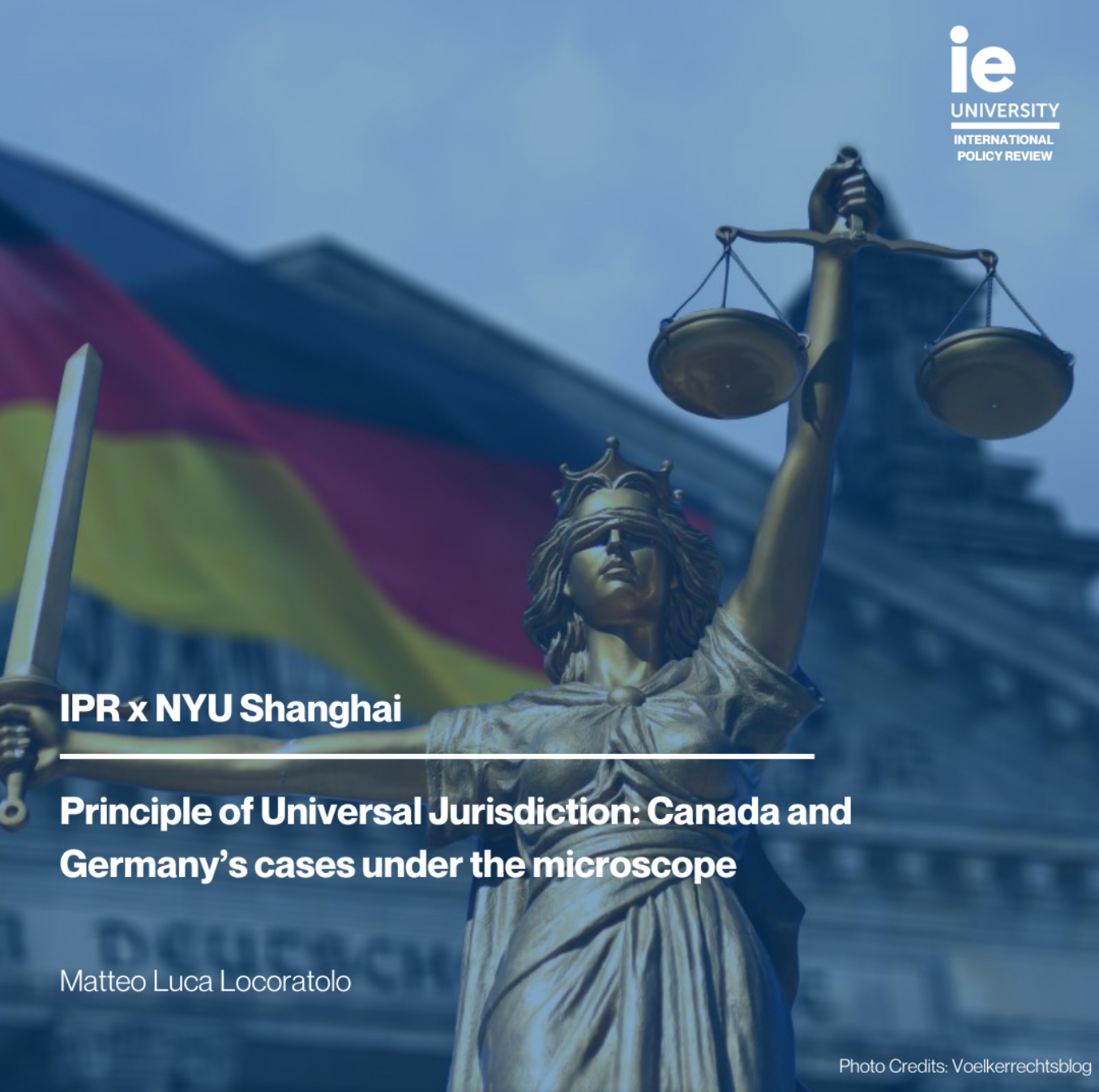
01 Jul Principle of Universal Jurisdiction: Canada and Germany’s cases under the microscope
Matteo Luca Locoratolo
E-mail: mlocoratolo.ieu2024@student.ie.edu
Abstract
The term ‘’universal jurisdiction’’ refers to the principle where a national court can prosecute individuals for serious crimes recognised in international criminal law, even if the offender is not a national of that state or the crime was not committed in that particular state. It is based on the idea that some crimes are considered so serious that all states have the obligation to prosecute such offences. However, this principle raises some questions and doubts among different countries. Every state implements a different approach when applying this principle. This analysis will delve into Germany and Canada’s distinct approach in applying the principle of universal jurisdiction. It will linger on the dual legal system that characterises Canada: Common law and civil law in Quebec. At the same time, such a legal concept brings along some diplomatic and political constraints, which shall be addressed in a dedicated policy section. Through the use of specific legal frameworks, case law and challenges characterizing the two different approaches, this article will offer a comparative investigation between the two countries, contributing to the broader discussion on the effectiveness and limitations of universal jurisdiction in international criminal law.
READ THE FULL ARTICLE HERE (Page 72-78)
Keywords: universal jurisdiction, structural investigations, judicial capacity

Sorry, the comment form is closed at this time.